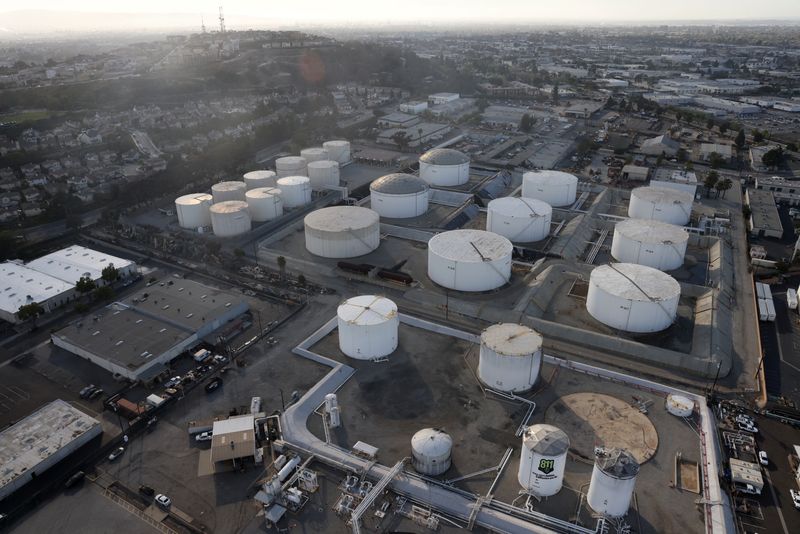By Jessica Resnick-Ault
NEW YORK (Reuters) -Oil prices fell Monday as concerns about demand fears stoked by the rapid global rise in Omicron coronavirus infections overtook concerns about oil supply reduction from Kazakhstan.
Brent crude fell 88 cents, or 1.1%, to settle at $80.87 a barrel. U.S. West Texas Intermediate (WTI) crude was down 67 cents, or 0.9%, at $78.23.
In early trade, both contracts rose by about 50 cents.
"Oil prices are following the stock market lower on Omicron fears," said Phil Flynn, a senior analyst at Price Futures in Chicago. The market also pulled back from early-session gains as Libya said production output was increasing.
World stocks stumbled again while the 10-year Treasury yield hit a two-year high as investors pared risky assets on bets the U.S. Federal Reserve could raise interest rates as soon as March. [MKTS/GLOB]
Concerns about the Omicron variant of the coronavirus bled into the oil market, pushing prices lower. Last week, oil prices gained 5% after protests in Kazakhstan disrupted train lines and hit production at the country's Tengiz oilfield while pipeline maintenance in Libya lowered production to 729,000 barrels per day (bpd) from a high of 1.3 million bpd last year.
Kazakhstan's largest oil venture Tengizchevroil (TCO) is gradually increasing production to reach normal rates at the Tengiz field after protests limited output there in recent days, operator Chevron (NYSE:CVX) said on Sunday.
Libyan production ticked up on Monday, and concerns about rising Libyan output overtook the market.
Last week, oil found support from rising global demand and lower-than-expected supply additions from the Organization of Petroleum Exporting Countries (OPEC) and allies including Russia, a group collectively known as OPEC+.
OPEC's output in December rose by 70,000 bpd from the previous month, versus the 253,000 bpd increase allowed under the OPEC+ supply deal. That deal restored output cut in 2020 when demand collapsed during COVID-19 lockdowns.

The demand recovery and a sharp fall in oil inventories have pushed the market structure for Brent and U.S. crude into deep backwardation.
A backwardated market structure means the current value is higher than it will be in later months and encourages traders to release oil from storage to sell it promptly.